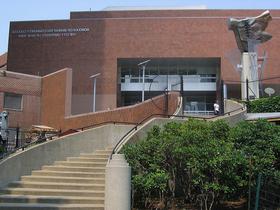While students enrolled in community colleges across the country in record numbers, these same campuses are simultaneously facing drastically reduced budgets. Because community colleges receive a large portion of their funds from the state, community colleges in states that are experiencing budget crises are hard hit financially. From California to Maryland, two-year institutions are skating on thin ice financially, and the students are feeling the toll of their states’ budget crises.
This video reports on what to expect with budget cuts.
California: Students Paying More as Community Colleges Deal with Overcrowding
In July 2009, California governor Arnold Schwarzenegger cut funding to the state’s community colleges by $812 million, writes Dean Murakami in Perspective, the quarterly publication of the Community College Council of the California Federation of Teachers.
Unfortunately, the situation gets worse. Over $1 billion of the budget for January to June 2010 is being deferred until July 2010, the next fiscal year. Murakami writes that this deferral means that many districts will struggle to pay their employees and meet other institutional costs. Additionally, the Community College Council is concerned that the deferred money may end up being cut in order to balance the 2010-2011 budget.
Students at California’s community colleges are feeling the direct results of this budget crisis. Student fees have increased to $26 per unit, and classes and programs are being cut as community colleges scramble to make ends meet with their newly reduced budgets. As Murakami puts it, “Students will be paying more to find fewer classes.”
Meanwhile, there are many students who had planned on attending one of California’s state universities but are now enrolling in community colleges due to the skyrocketing tuition costs at the state’s four-year universities. Subsequently, in some districts, there are more students wishing to enroll than community colleges can handle.
This video reports on student reactions to budgets cuts at California community colleges.
Utah: Community College Campuses in Danger of Being Shut Down
Although Salt Lake Community College has experienced a 16% increase in enrollment this year, it recently announced that it is shutting down one of its campuses due to budget cuts, according to the Salt Lake Tribune.
William Sederberg, Utah’s Commissioner of Higher Education, warned legislative appropriations subcommittees that “it is very likely that the Board of Regents will have to declare a financial emergency for one or more institutions” if lawmakers enact a 5 percent budget cut during the next fiscal year.
The community colleges that are in danger of being shut down next year are the College of Eastern Utah and Snow College, reports the Tribune. To declare a state of emergency for these institutions, warns Sederberg, would damage Utah’s “reputation for its commitment to education which has its own set of long-term consequences.”
This video reports on the effect of budget cuts in Utah community colleges.
Maryland: Four-Year Institutions Take Precedence Over Community Colleges
In Maryland, Governor Martin O’Malley’s proposed budget would provide less direct aid to community colleges, prioritizing state assistance to four-year colleges and universities over assisting community colleges.
According to the Maryland Reporter, the state has in previous years set community college spending as a percentage of the amount that Maryland spends per student at public four-year colleges and universities. However, in the new proposed budget, the governor will set a specific funding limit for the colleges.
Maryland Delegate John Bohanan, chairman of the House Appropriations Subcommittee on Education and Economic Development, tells the Reporter that although supporting community colleges is important, supporting four-year institutions must be a higher priority for his state. “I think it’s important to support the community colleges, especially at this time, because we have a lot of folks who are going back,” Bohanan is quoted as saying. He adds, though, that “I think we also are fully responsible for our public colleges and universities, and we have to maintain that as a priority.”
This video reports on budget cuts in Maryland community colleges.
Texas: Those Who Can Least Afford To Bear the Brunt of Budget Woes
Community colleges in Texas have been told to submit plans for expending up to 5% of their state funding, reports the Texas Corpus Christi Caller. One of these community colleges, Del Mar College, is proposing increasing tuition and fees by 12 percent to avoid cutting programs.
As the editorial column reporting this situation points out, “hiking tuition by 12 percent would make it significantly harder for disadvantaged students to go to Del Mar.” Community college students are often struggling to make ends meet themselves.
As the Caller points out, it benefits the community when economically disadvantaged or unemployed people are given the opportunity to further their education and train for new jobs. Passing on budget cuts to community college students in the form of increased fees will make higher education and career training inaccessible to some of the neediest state residents.
The Struggle Continues
Although community colleges are struggling, they are not giving up the fight. California’s Martinez News-Gazette reports that Contra Costa Community College District board members are planning to attend the American Community College Association legislative summit in Washington, D.C. next month. There, community college stakeholders from across the nation will ask the federal government to provide more financial assistance for those Americans who need and want to pursue educational opportunities.
Although Contra Costa Community College board member Sheila Grilli says the situation is “grim,” she also adds that “we aren’t defeated.” Hopefully, this persistence will bode well for all community colleges across the country.
Questions? Contact us on Facebook. @communitycollegereview















